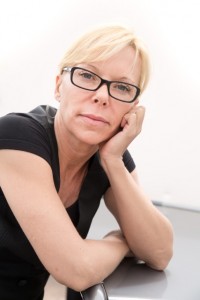WomanCare Global
Health Care
Improving Reproductive Health for Women
WomanCare Global puts its health products in the hands of the poor
By Manny Cruz
From an office in Cardiff by the Sea, the small beach community between Solana Beach and Carlsbad, Saundra Pelletier and her WomanCare Global network have influenced the health of millions of women in more than 100 countries of the world over the past three years. Pelletier calls them “invisible women” because they are poor and have not previously had access to the contraception and reproductive-health products that WomanCare Global makes available to them. The blonde, 42-year-old founded the nonprofit organization in 2009 — and serves as its CEO — out of a lifelong dream to help women who are desperately in need of health care.
“Growing up in Caribou, Maine, I learned very early that education and access to health care are incredibly essential for all women to lead successful and fulfilling lives,” says Pelletier. “I’m passionate about providing health care products to individuals around the world as well as those in the United States and deserve access to a healthier existence.”

WomanCare Global contracts with several pharmaceutical manufacturers who provide it with a portfolio of nine products dealing with contraception, fertility and pregnancy management. The products are sold to clinics around the world and made available to women at a lower price than they could get them from the pharmaceutical giants. “The products come from nine different manufacturers, some are made in the United States and some are made in China, India and Taiwan,” says Pelletier. “We go and make sure their manufacturing processes meet U.S. standards of quality and then distribute the products in the countries.”
The quality of the products is very important to Pelletier, aside from the fact that they are affordable to the women who need them. “We see too many counterfeit and knockoffs and women having so many side affects from them that they cannot continue to take them,” she says. “We make them available to women all over the world at a price they can afford.”
Although WomanCare Global distributes its products in more than 100 countries, the majority of its focus and resources are spent in the developing markets of South Africa, Kenya, Ghana, Uganda, Ethiopia, India and Pakistan, and in the United States, UK, Mexico City, Brazil and Turkey.
Since its founding in 2009, WomanCare Global has reached 15 million women with its products, or about 5 million a year, according to Pelletier. She says the organization is financed by product sales, which next year will amount to $5 million as part of an $11.5 million budget, and from contributions from other sources. Last year it received a donation of $3.5 million from Ipas, a nonprofit group that works to improve women’s access to safe and quality abortion care and reproductive health services.
Currently, the organization employs 42 full-time employees and has 25 consultants who work on a part-time basis.
Pelletier expects that after five years of operation, WomanCare Global will become self-sustaining, able to generate enough revenue that it will not be dependent on donations. The organization’s biggest challenge, she says, is identifying enough donor support during that time period to accomplish that goal. But there are other challenges, such as attracting business people to the organization — “people who care about the mission,” she says — and competition from big pharmaceutical companies. “We needed to have a portfolio of products to create a better package so we can compete with the big pharmaceutical companies,” says Pelletier. “It’s to get leverage.”
WomanCare Global Products
Contraception:
• Essure — permanent contraception
• Optinor — emergency contraception
• Roselle — oral contraceptive
• Simplant — long-acting contraceptive implant
Fertility:
• Endometrial Biopsy
Pregnancy Management:
• Aspirators
• Cannula
• Accessories
